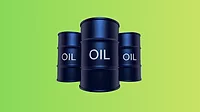Department of Energy Slashes 47 Regulations in Historic Deregulation Push
Your microwave just got deregulated...

Image via Don Nichols from Getty Images Signature
The U.S. Department of Energy announced this week what it's calling the largest deregulatory effort in the department’s history, proposing the rollback of 47 federal rules across sectors ranging from appliance efficiency to diversity compliance. The initiative is framed by the agency as a major cost-saving milestone—but observers say the broad scope and timing warrant closer scrutiny.
According to the DOE, the plan could save Americans an estimated $11 billion and eliminate more than 125,000 words from the Code of Federal Regulations. The move supports President Donald Trump’s executive order, “Zero-Based Regulation to Unleash American Energy,” aimed at cutting what the administration labels as outdated or burdensome rules.
“While it would normally take years for the Department of Energy to remove just a handful of regulations, the Trump Administration assembled a team working around the clock to reduce costs and deliver results for the American people in just over 110 days,” said Secretary of Energy Chris Wright in a press release.
“Thanks to President Trump’s leadership, we are bringing back common sense — slashing regulations meant to appease Green New Deal fantasies, restrict consumer choice and increase costs for the American people,” Wright added. “Promises made, promises kept.”
What’s Being Cut?
The 47 regulatory actions include a wide range of changes, such as:
- Rescinding energy efficiency standards for appliances like microwave ovens, dishwashers, and washing machines.
- Rolling back rules on external power supplies and battery chargers.
- Withdrawing products like portable air conditioners, fans, and electric spas from covered regulation.
- Eliminating requirements for reporting greenhouse gas emissions.
- Rescinding DEI-related rules for federal grants and anti-discrimination protections in sports and education programs.
While the full list is publicly available through DOE documentation, the diversity of the rules being rescinded—ranging from technical appliance standards to civil rights protections—has sparked concern from policy experts and legal scholars.
Though the DOE touts these rollbacks as cost-saving and pro-consumer, energy policy analysts and environmental groups have raised alarms.
No direct quotes from independent experts were included in the DOE's release. However, multiple organizations, including the Natural Resources Defense Council (NRDC) and the American Council for an Energy-Efficient Economy (ACEEE), have previously stated that energy efficiency standards are crucial in reducing long-term energy costs for consumers and lowering environmental impacts. In past rulings, groups like ACEEE have documented how such standards save households hundreds of dollars annually.
The elimination of renewable energy incentives and greenhouse gas reporting requirements may undercut climate transparency goals, a concern that is likely to echo through courtrooms and congressional hearings.
The administration has been leaning heavily on deregulation as a sign of delivering on campaign promises, appealing to both energy sector leaders and small-government advocates.
Still, the wide net cast by this initiative has opened the door to litigation. Civil rights organizations have already flagged the rollback of nondiscrimination rules in education and federal programs as potentially unlawful under Title IX and other statutes. The DOE has yet to comment in detail on the legal defensibility of these specific repeals.
What’s Next?
The proposed rules are not yet finalized. The DOE must follow formal procedures, including a public comment period and regulatory review, before enacting most changes. Historically, broad deregulations of this scale face delays, lawsuits, or reversals—especially if there's a change in administration. In the meantime, the debate over whether this is overdue streamlining or reckless deregulation will likely intensify.
The final outcome may hinge not just on economics, but on public perception and legal interpretation.
Looking for a reprint of this article?
From high-res PDFs to custom plaques, order your copy today!






